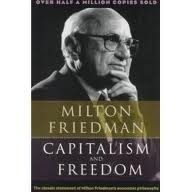A hot political issue is income inequality. The heart of the debate is that it doesn’t seem fair for some people to make millions while others are living close to or in poverty. The government already redistributes wealth through taxes and a variety of welfare programs including food stamps, Medicare, Medicaid, Social Security, etc., but advocates want to see a lot more. Is this fair? Is it feasible? Are there unintended consequences for even more income redistribution? Let’s check it out by first reviewing the scope of the problem: according to the latest data, the wealthiest 1% of taxpayers pay about 40% of all individual Federal income taxes and the wealthiest 10% pay about 70%. However, the bottom 50% of taxpayers only pay about 3% of all Federal income taxes.
The United States’ economy is fueled by free enterprise, also known as Capitalism. Being able to make a better life for yourself and your family motivates people to devote the time, energy and work necessary to become financially successful. This system, however, does result in some being very rich and some being poor. Free enterprise, as practiced in the United States, contains economic safety nets to help ensure that no one is destitute. Even so, some will still be bad off. Here’s where charities play a large roll, as well as simple government policies, such as those that require that hospitals treat everyone, even when they can’t pay.
For average-income Americans, the Social Security Administration has reported that in 2020, the medium household income was $34,612. This poor record was the fault of the Federal government in over-regulating businesses, until recently having an absurdly high (35%) corporate income tax rate that forced U.S. companies to relocate overseas where rates were much lower, as well as having had high individual tax rates (since many small businesses file as individuals). All of these policies are still advocated by the Democrat Party, who, in the same breath, say they’re for the “little guy” and for the poor.
Free enterprise is not perfect but has moved billions of people out of poverty in India, China and many other countries. Winston Churchill said that, “the inherent vice of capitalism is the unequal sharing of blessings; the inherent vice of socialism is the equal sharing of miseries.” Venezuela is the best recent example of how a wealthy capitalist country becomes impoverished when it converts to socialism. Income inequality naturally occurs under free enterprise but can be somewhat mitigated through the tax system. I believe that it should therefore be tolerated but great effort made by government and businesses to naturally raise lower incomes to higher incomes.
Finally, I never got a job from someone poor. However, when I became relatively well-off, I was able to give temporary, part-time employment to others needing jobs. Most wealthy people want to help others in this way. And billionaires eventually give their money away to charities, their families, etc. However, if the government took away most of the wealthy’s money, it would surely waste it.


